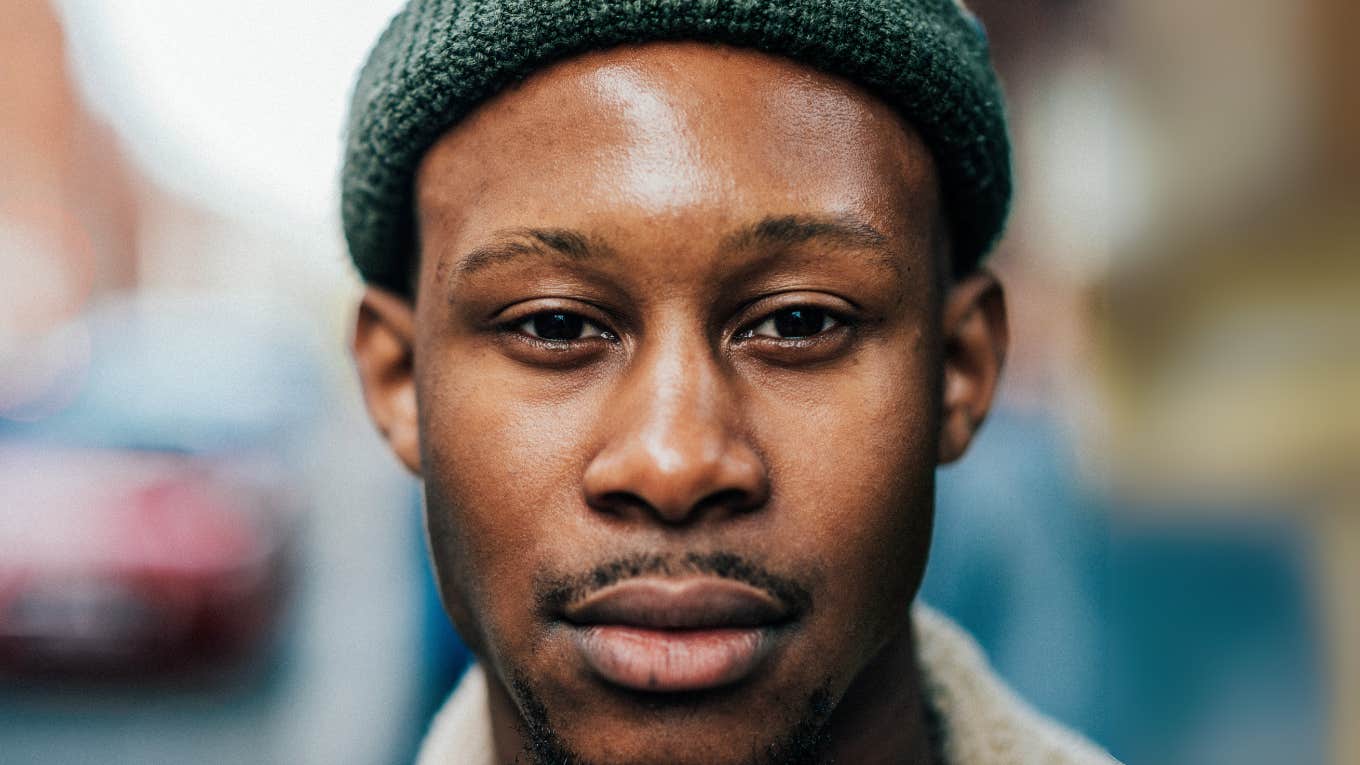6 Things Deeply Immature People Do That Push People Out Of Their Lives
The habits that scream emotional immaturity, and they're the kind of behavior that drives everyone away.
 Drazen_ | Canva
Drazen_ | Canva When everyone around you seems to be dating and in a relationship, you may start asking yourself, "When's my turn? When will I find love?" Society gives us messages every day of every month that we should be dating by a certain age, being intimate by a certain age, married by a certain time, and having children at some point as well.
But if you're still single and not hitting these socially constructed milestones, then society says there’s something wrong with you. There's not, but there may be other reasons you haven't found true love in healthy relationships yet, and it may be because you do things that are deeply immature that push people away from you.
Here are six things deeply immature people do that push people out of their lives:
1. Mistake chaos for passion
Defining a healthy relationship requires more than observing someone else’s relationship and attempting to emulate it. It also requires committing to learning more about yourself and the baggage you bring to the relationship. A 2024 study found that when emerging adults received structured training in areas such as self-awareness and boundaries, their self-concept and understanding of healthy relationships improved significantly. I
If you're in a relationship without a clear idea of what healthy means to you, you're setting yourself up for an "anything goes" situation, where it's common to go with the flow, or say, "Let’s not put labels on us", or "I don’t want anything too serious." Let’s make sure you take time to explore who you are, why you have certain beliefs about relationships, and how you can be a better partner and better select a partner.
2. Avoid committing to any one path
Many relationships are without a purpose or vision. Unsurprisingly, these relationships often involve individuals without a clear purpose or vision. A purpose is a sense of why you exist and what you feel led to or called to accomplish in your time on Earth. Your vision is what you have indicated are the objectives that you will accomplish in the future.
Many people believe in putting the cart before the horse, getting into a relationship, and then defining their purpose and vision. Unfortunately, this often leads to dating and investing in unfulfilling relationships while living an unfulfilling life.
Establishing your purpose and vision first allows you to establish a fulfilling life while minimizing the number of unfulfilling relationships and people in your life. Take some time and explore your values. Create your purpose and vision statements as well. Then live accordingly.
3. Struggle to set clear boundaries
 Blue Titan | Shutterstock
Blue Titan | Shutterstock
There are 3 main types of boundaries: rigid, porous, and healthy boundaries. Rigid boundaries mean you’re more likely to avoid intimacy and close relationships, and you may be described as emotionally detached in the relationship. You keep others at a distance. No partner will want to stay with you with these boundaries. If you have porous boundaries, you have difficulty saying "no" to your partner’s requests, even when you don’t want to. Also, you over-assume responsibility for your partner’s challenges, you are dependent upon their opinion of you, and you accept abuse and disrespect.
A partner may stay in the relationship with you to get as much as they can out of you, or they may leave because they feel too emotionally drained by your neediness. It is only after you have healthy boundaries (i.e., you refuse to compromise your values for others, you accept your partner’s "no", and you can communicate your needs and wants) that you are ready to be in a relationship.
4. Treat relationships like they're a cure for loneliness
Loneliness has become synonymous with "single" in our culture. And many people dread the idea of being single as if it’s a life sentence in prison. But loneliness is not the same as being single.
A 2013 study found that single adults often feel more lonely in their romantic lives and sometimes feel less supported by close family or partners, even if they have strong friendships. And it's important to remember that loneliness can affect everyone, including those in relationships, as a 2023 study showed it can lead to less trust and commitment, and more conflicts in romantic relationships and partnerships.
Many married people in counseling often complain about being lonely, unheard, unsupported, "feel like a single parent", and "feel like we’re roommates." Loneliness is more about your relationship with yourself. Do you love yourself? Do you take care of your needs? Do you have a relationship with God or a higher power you believe in?
Loneliness, like a serious drug, will cloud your judgment in dating. You sacrifice your values and principles, overlooking relationship deal-breakers, for the sake of not being lonely. Resolve your loneliness before you become emotionally involved with someone.
5. Allow yourself to be someone's backup plan
 Motortion Films | Shutterstock
Motortion Films | Shutterstock
Unless you’re in an open or polyamorous relationship, being any number on a list of partners is a sign of desperation and usually results in you being hurt. You’re still mostly single with an occasional partner. In this situation, you are accepting that any attention is better than none, and any disrespect is better than none. This is a lose-lose situation.
Even if you "win" and become the "only one" they choose to be with, you now have to consider if this person can commit solely to you. You are worthy of being someone’s only partner. You deserve to be loved, respected, valued, and supported wholeheartedly, unequivocally, and uncompromisingly.
6. Refuse to adapt or evolve
In a relationship, love is a mutual effort. The Golden Rule says we should do unto others as we would have them do unto us. In theory, that is a good policy to hold. Unfortunately, not everyone requires their exact needs to be met to feel loved. According to author Gary Chapman, there are five love languages: words of affirmation, receiving gifts, acts of service, quality time, and physical touch.
According to the golden rule, if your top love language is acts of service, you’d elect to provide your partner with acts of service because it’s what you’d want in return. But if their top love language is words of affirmation, then they are not getting their needs met the way they’d like. Consequently, the relationship could be adversely affected.
Loving your partner in the only way you want to love them can harm your relationship, so it's essential to be open to feedback to maintain a healthy relationship. Relationships are complex and require more than "they say" and "let’s just see what happens." You may have baggage that complicates your view of relationships and yourself.
Challenges with any one or more of these points above are more likely to indicate a deficit in your relationship with yourself first, which will inevitably lead to deficits in your relationships with others. Although this is not a comprehensive list, these six points are a great starting point for achieving preparedness in a healthy and long-lasting relationship. Contact a relationship expert to help you work through any of these points so that your next relationship is your best relationship.
Dr. Eric A. Williams is a counselor and marriage and family therapist, specializing in both interpersonal and intrapersonal relationships.

